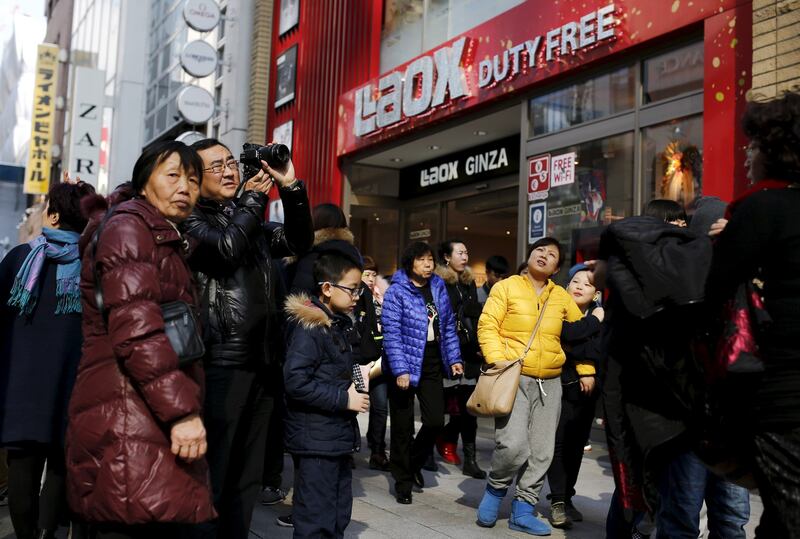Read coverage of this story in Chinese here and here
Concerns are once more being raised about anti-Japanese hate in China following the killing of a 10-year-old Japanese boy in the southern city of Shenzhen last month, with the country's foreign ministry forced to deny that the government teaches its citizens to hate Japan.
In the wake of the tragedy, social media footage of people in China trampling on the Japanese flag has further highlighted the national mood.

Anti-Japanese feeling has long been a key weapon in the armory of China's nationalistic " little pinks," a hardy staple of Chinese television and cinema and a handy form of clickbait for anyone seeking to boost social media traffic, commentators told Radio Free Asia in recent interviews.
The online hate seems to be having an impact on the ground. The Shenzhen killing wasn't the first attack this year – a Chinese woman died and a Japanese mother and child were injured in a knife attack in the eastern city of Suzhou in June.
In March, social media users took aim at Chinese bottled water manufacturer Nongfu Spring over the allegedly Japanese references on its product labels, while last year's release of treated radioactive wastewater by the crippled Fukushima nuclear plant into the surrounding ocean launched a wave of nuisance phone calls to Japan.
And yet recent government figures from Japan show a sharp rise in Chinese nationals coming to the country for tourism and study, belying the nationalist tropes that are daily occurrences on WeChat, Weibo and Douyin.
Popular tourist destination
A survey by Tokyo-based Intersect Communications last month interviewed 556 Chinese respondents aged 10 to 60 years old via a WeChat poll, and found that 53.1% said Japan would be their first choice of tourism destination over the Oct. 1 National Day holiday period.
Meanwhile, data from the Japan National Tourism Organization recently revealed that the Chinese make up the largest proportion of foreign tourists visiting Japan, with 745,800 visits in August 2024 alone.
A resident of the eastern province of Anhui who gave only the surname Wu for fear of reprisals said a large proportion of anti-Japanese comments online are left by a relatively small group of people keen to show their nationalistic credentials, for a variety of reasons.

Everyone else is actually pretty keen to go to Japan and shop for appliances, food and clothing.
"Japanese products have always been popular in the Chinese market, especially electronics, mobile phones, and so on," Wu said. "A lot of businessmen and politicians know this very well."
A resident of the eastern province of Jiangsu who gave only the surname Wang for fear of reprisals said plenty of people shout nationalistic slogans online, but their personal feelings about a country and its people, and their real-world actions, tell a very different story.
Deflected frustration
Citing the example of Chinese commentator Sima Nan, who has been ridiculed for his anti-American sloganeering while living full-time in the United States, Wang said: "A lot of people are anti-American or anti-Japanese on the surface, but their actual actions run counter to their words -- for example, they might send their kids to study in the United States."
He said much of the criticism of foreign governments is a form of deflected frustration over the fact that they're not allowed to criticize their own.
"Criticizing foreign governments is safer, and some people make a living out of it," Wang said, in a reference to nationalistic influencers, some of whom pick on Japanese people on the streets of China and ask them aggressive questions about their country's historical abuses of Chinese people.
"Patriotism is a kind of clickbait, particularly in the context of online sales," he said.
Yet it's not just tourism and shopping trips that are drawing Chinese people to Japan.

A survey by the Japan Student Services Organization last year found that there were around 115,000 young Chinese people studying in Japan in May 2023, a rise of 11% on the same period the year before, according to Chinese blog Japan Story.
It quoted a veteran journalist as saying: "10 years ago, there were less than 100 Chinese high school students in Japan, and now that number has increased tenfold ... some Japanese high schools have started actively recruiting Chinese students to come study here."
Government deliberately spreading ideas
A teacher from the northern province of Shanxi who gave only the surname Wang for fear of reprisals said many of her friends send their kids to Japan to study, to get them used to life outside of China before sending them to overseas universities.
"Japan's much easier to get to than the United States, and the cultural and economic costs are less," she said. "There's also a ... high-quality education system with good welfare."
"What these people who claim to hate Japan don't realize is that it's the [Chinese] government that is deliberately spreading these ideas," Wang said.

Chinese foreign ministry spokesperson Lin Jian denied that his government encourages anti-Japanese sentiment, when asked by Japan's NHK on Sept. 24.
"On what you referred to as “anti-Japan” comments, let me just say that China does not teach its people to hate Japan," Lin told a regular news briefing in Beijing.
"After the attack near the Shenzhen Japanese School, many Chinese laid flowers outside the school to mourn the boy. They expressed opposition to violence and called for ever-lasting friendship between the Chinese and Japanese people," he said.
Lin said Beijing sees history as not about perpetuating hatred but about "cherishing the hard-won peace and creating a bright future."
RELATED STORIES
[ Japanese boy dies after being stabbed in southern ChinaOpens in new window ]
[ China, Japan honor bus attendant who died in Suzhou knife attackOpens in new window ]
[ Chinese soccer fans bemoan 0-7 loss to Japan as ‘Day of Humiliation’Opens in new window ]
[ New sushi outlet bucks anti-Japanese trend in BeijingOpens in new window ]
Communist Party legitimacy
But Yang Haiying, a professor at Shizuoka University in Japan, said Lin's remarks were disingenuous.
"This is national policy [in China], because without anti-Japanese sentiment, the Chinese Communist Party loses its legitimacy," Yang told RFA Mandarin in a recent interview.
"China has whipped up anti-Japanese sentiment to a very high level, but now it can't control it," he said.
Japanese journalist Fukuzawa Takashi agreed.
"For the Chinese government to maintain stability, it must have access to two emotional ATMs," Fukuzawa said, adding that online influencers have picked up on nationalism as a permitted way to generate online outrage and discussion, boosting traffic.

This has created the impression, through repeated brainwashing, that it's wrong not to be anti-Japanese in China, he said.
"Over time, this so-called anti-Japanese sentiment becomes deeply implanted in their heads, so that when a person is having financial difficulties, or is depressed and frustrated with other areas of their life, the Japanese are the best target for them to vent," Fukuzawa said. "And they become a hero in the process."
Translated by Luisetta Mudie. Edited by Luisetta Mudie and Paul Eckert.
